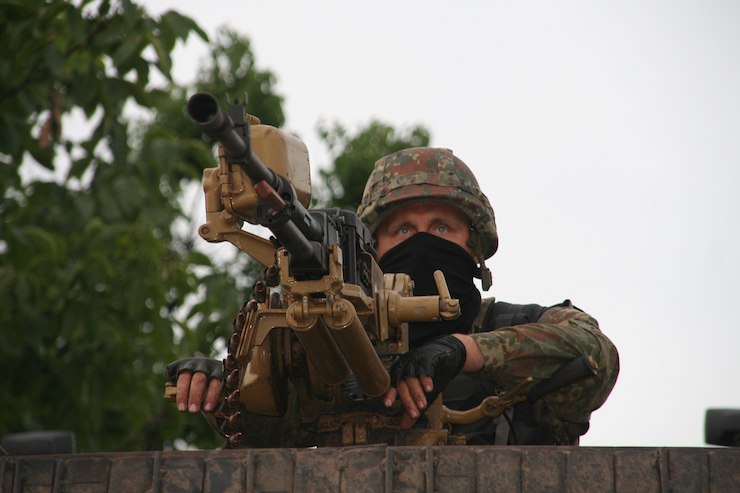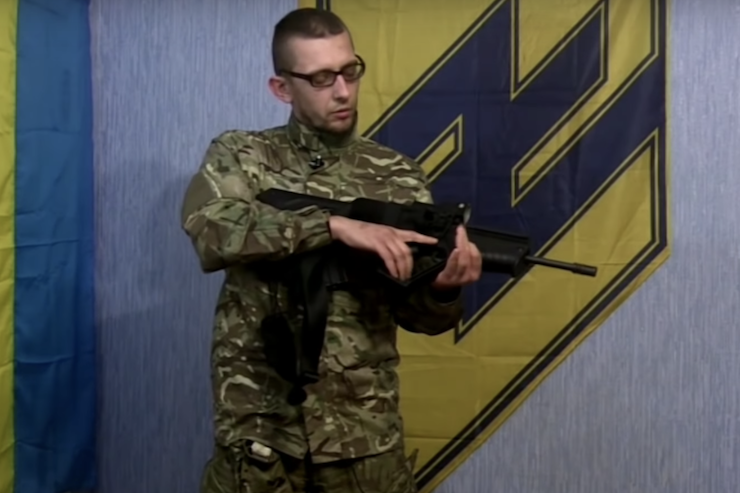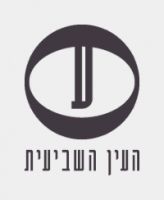Human rights activists are hoping to use the courts to expose Israeli arms exports and security know-how to neo-Nazi militias fighting in Ukraine.
By Shuki Taussig

Is Israel knowingly selling weapons to neo-Nazi militias in Ukraine? A group of Israeli human rights activists filed a petition to the Tel Aviv District Court last June to demand the government halt weapons exports to the country, where armed groups have been engaged in fighting for the past five years.
In response, the state has asked that the court slap a gag order on legal proceedings surrounding the alleged sale of weapons and military knowledge to neo-Nazis fighting in Ukraine, and has requested the court tohold its hearing behind closed doors and present its arguments in an ex parte hearing.
The petition, submitted by attorney Eitay Mack on behalf of 42 activists, demands that the Tel Aviv District Court instruct the Defense Ministry official charged with overseeing security exports to rescind, either tentatively or permanently, the licenses granted for exporting weapons to Ukraine. The activists argue that these weapons serve forces that openly support a neo-Nazi ideology and cite evidence that the far-right Azov Battalion, whose members belong to Ukraine’s armed forces, are using these weapons.
The Azov Battalion was established in Ukraine following the 2014 Russian invasion of the Crimean peninsula. It uses well-known National Socialists symbols, while its members use the Nazi salute and carry swastikas and SS insignias.
“It is well known that the State of Israel has a special commitment to the global struggle against neo-Nazis and anti-Semitism,” the petition states. “Even if there is any interest in continuing Israeli security exports to Ukraine, the petitioners believe that the State of Israel cannot take the risk that Israeli weapons and training will be used by neo-Nazi and anti-Semitic soldiers.”
The state’s response included affidavits by top Defense Ministry officials, and rejected the petition out of hand, saying the judicial system has no say in matters of security exports. “The decisions regarding security export policy clearly fall under the powers of the executive branch, which are made on the basis of considerations that have to do with national security, foreign relations and international obligations while safeguarding the vital interests of the state,” attorney Sarah Bello from the Tel Aviv District Attorney’s Office wrote in the response.
But what are the vital interests of the state for which it decided to grant arms export licenses that may or may not end up in the hands of neo-Nazi militias? Both the Defense Ministry and Foreign Ministry have requested that the court hearing vis-à-vis these interests — or anything else relating to the petition — remain behind closed doors. The state says the reasons for doing so are “clear,” yet it does not go into detail as to why, noting that the court had previously accepted the request for closed-door hearings on matters relating to security exports.
The state further argued that “the State of Israel’s security export policy is subject to constant scrutiny and periodic assessments by the senior echelons of the Defense Ministry and the Ministry of Foreign Affairs, in coordination with other relevant bodies.”
In response to the state’s request, the petitioners said that they “oppose a request that hides more than it reveals.” They argued that previous proceedings on the issue of defense exports were held in open court, even if the verdict remained confidential. The petitioners also argued that information that the state wishes to conceal in the gag order is published in the media anyway, and that the state itself repeats said information in non-confidential legal documents.

The petitioners describe a redacted protocol that the state included in its request for a closed-door hearing. According to them, the lines that had been blotted out were “public statements written by the petitioners’ counsel in a petition open to the public, and as stated, the petitioners have repeated them on every possible media platform.”
The state clarified its reason for a closed-door hearing in a response to the petitioners’ response, saying that the petitioners’ arguments will also be prohibited from being aired in public, saying that a public hearing will lead to media exposure that does not fall under the full control of the state.
“The state’s position that prohibiting publication is required also vis-a-vis the petitioners’ arguments as part of the hearing is, inter alia, a result of the lessons of the past in which the arguments made by the petitioners’ counsel were heard in an open-door hearing, and without the respondents being able to openly respond. These were published in the media, which mischaracterized and distorted the state’s position.”
According to the state, the petitioners’ refusal to present their arguments in court — during which they would not be allowed to be exposed to the arguments of the other side — is evidence that their “real desire… has to do with the media.” The response did not include any evidence to show that the Israeli media frequently deals with legal proceedings against arms exports and security know-how from Israel to foreign groups who commit war crimes, hold neo-Nazi ideologies, or serve dictatorships.
The Tel Aviv District Court will hear the petition next week on June 26.
This article was first published in Hebrew on The Seventh Eye. Read it here.

